 Curriculum & Instruction
Curriculum & Instruction  2 Comments
2 Comments 10 Things My 30s Taught Me
On December 28, I turned 40. This came as no surprise, even to one as math-impaired as me.
It’s virtually impossible to throw a birthday party on my birthday, since everyone is exhausted from Christmas and saving up energy for a big New Year’s Eve blowout (if they’re even in town). There’s even an Old English word for it: symbel-werig. It means “feast-weary,” and that’s what everyone is on my birthday.
The worst it ever got was my 18th birthday. My parents had dinner theater tickets, and my brother was at his friend’s house (after his birthday, the day before mine. No, really.). My sister and I were home alone. She made a Pyrex bowl of raspberry Jell-O and stuck a taper candle in it. We watched Schindler’s List. Whoop-de-doo.
For the big one this year, though, I decided that nothing said “me at 40” like riding rollercoasters. Thanks to Nickelodeon Universe, the indoor theme park in the middle of the Mall of America, it’s actually possible to do this in a Minnesota winter. Also, yay for half-price unlimited ride wristbands from 5-10pm. There was the entertaining possibility that I’d get a mall security escort because I’d been a marshal at the #BlackLivesMatterMOA protest two weeks earlier. I planned to lure him onto rides, in case I felt like chanting anti-oppression slogans on the loop-de-loops. Alas, no joy.
Rolling over the odometer also made me think about what can happen in just one decade of living. I don’t feel older, or even different, just more like the person 30-year-old me hoped to be eventually. Still, I learned a lot of lessons in the last 10 years, so here’s the top 10 lessons I learned in my 30s.
1) Having a second child is nothing like having the first. I had my first son when I was 28, and my second one when I was 32. Instead of throwing up 20 hours a day for 5.5 months, I threw up 24 hours a day for 7.5 months in my second pregnancy. My labor couldn’t have been more different, too. And you needn’t look any further than this blog for how different the boys are from one another. Motherhood: what a weird, wonderful ride.
2) The key to my kid is the key to myself. When I was a kid, my parents and teachers told me I was “socially backward” because I was intellectually advanced. Slamming doors and balloons popping gave me migraines. I preferred the company of adults. And I recognized a lot of these traits in my older son; we joked that he inherited those traits. In fact, what we both were was autistic. Learning that unlocked memories and mysteries that plagued me my whole life, and understanding those helped me translate the world for my kid. We’re all so much better for knowing ourselves.
3) Intersectionality is everything. I’ve felt this way forever, but didn’t know there was a word for it until I read a Flavia Dzodan blog post that introduced me to the term, coined by UCLA prof Kimberlé Crenshaw. I also didn’t realize it was such a controversial idea until I started advocating it. How is this difficult for people to understand? We are all so many different people, and all of our selves are bound together when it comes to liberation. How can you be a feminist who excludes trans women? How can you be anti-racism and simultaneously suppress the contributions of women? How can you demand an end to oppression but hold planning meetings that are inaccessible to disabled people? In Flavia’s words, “My activism will be intersectional or it will be shit.”
4) Don’t move without a safety net. I learned this one the hard way. In Minnesota, you have to be a resident before you can apply for state health insurance. We had paperwork ready to go the day we moved, but we encountered a four-month wait. We’d saved money for an appointment to get me set up with bridge coverage for my fibro and depression. What I didn’t do was research doctors—the one I went to refused to continue the treatment plan I’d had for over a decade. The decompensation that happened without my prescriptions resulted in a summer lost to pain and despair, ultimately landing me in the hospital. Lesson learned? You cannot overplan for your medical care when moving–your life literally depends on it.
5) Family is what you make it. I grew up so close to my family that I refused to even consider moving to New Zealand to be with my Darling Husband, because I couldn’t imagine going so long between visits with my parents and siblings. But after I called out my family about 4 years ago for treating my autistic son like crap and undermining our parenting, everything changed. My brother and sister still won’t talk to me for hurting my mom, even though she and I are fine now. Thankfully, we’ve built a family of friends, old and young, near and far, who more than make up for the love lost. All that’s left to mourn is the continuity.
6) Sharing knowledge is more than the letters after your name. My grad school department kicked me out in 2005 because my area of study didn’t match their idea of subjects that build a “world-class history program.” Despite that, I have 15 years of teaching experience, and knowledge that I use everyday—with my kids, with other kids, with other adults, and in my organizing. Teaching is my vocation, plainly put. Even if the flood of post-recession Ph.D.s makes it unlikely I’ll get a college job again, I’m always looking for ways to share what I know in engaging ways.
7) Caucusing is hazardous to your health. Until we moved to Minnesota, I’d always lived in states with primary elections, so I was extremely excited to attend my first caucus on February 2, 2012. It was weird and idiosyncratic and strangely wonderful; I was too hyped about democracy to sleep until midnight. At about 1:00 AM, I woke with abdominal pain. By 5:00 AM, it was worse than labor, and Darling Husband took me to the ER. I had acute pancreatitis, caused by a gallstone. I spent a week in the hospital, and they surgically removed a bag of rocks from my gut. I now view caucuses as highly suspicious and potentially life-threatening.
8) I am committed with my whole heart and soul to equity. This isn’t about rights, or even history. It’s about empathy. If anyone’s potential is oppressed for who they are, then my potential is also less. I see the beautiful humanity in everyone, and want for them the joys I’ve found and the opportunity to be all of themselves. And yes, I’m willing to block traffic, invade public spaces, and commit civil disobedience to make this happen. I consider it a sacred duty.
9) Together, we win. I’ve never been very competitive, and I always plan for failure so that, as Lloyd Dobbler wisely advised, “…everything’s kind of a pleasant surprise.” But with the campaign for marriage equality, and against Voter ID, and for a new anti-bullying bill and a higher minimum wage, guess what I discovered? I like to win. I like it almost as much as the conversations and organizing it takes to come out victorious. These efforts and the folks I’ve met in them evaporated any cynicism I had about the potential of people power. I highly recommend it to everyone.
10) It’s never too late. I didn’t intend to really go balls-out for the last year of my 30s, but I accidentally did. I learned and performed burlesque dance, even in this imperfect body. I got two big tattoos, the first I’ve ever had. I went to a national convention for community organizers. I shut down highways, corporate offices, and the largest mall in America. I made my kid’s middle school change their negative, reactive response to common autistic behaviors, and re-centered them on positive reinforcement that nourishes all children’s education. All this with my physical and mental limitations. It’s never too late to do important things, and if you forget that, just ask me for a reminder.


 tales to the straightforward ones.
tales to the straightforward ones. address that lack of feminine agency, I came up embarrassingly short of good lessons for boys. Current fairytale telling seems to operate on the idea that there’s a finite amount of power and smarts in the story, and if the women get more of it now, it has to happen at the expense of the men.
address that lack of feminine agency, I came up embarrassingly short of good lessons for boys. Current fairytale telling seems to operate on the idea that there’s a finite amount of power and smarts in the story, and if the women get more of it now, it has to happen at the expense of the men. Princess Fiona, Merida, and Rapunzel are smart, feisty, and entirely capable of their own liberation and defense in times of peril. Heroes, on the other hand, like Shrek, Merida’s father Fergus, and Flynn, the hero-rogue in Tangled, are to varying degrees incompetent, gullible, morally weak, and easily distracted from their goals, dependent on the women in their lives to keep them in line and out of trouble. The only male characters that go through real, multi-layered, character evolution in recent years are Beast from Disney’s Beauty and the Beast and Hiccup in How To Train Your Dragon. Jack in the recent Jack the Giant-Killer is a fairly humble live-action hero whose love for the princess, at the very least, does not make him stupid. Shrek does go through some evolution, but seems to stumble his way from lesson to lesson, and seems weakened and henpecked by the end of the series.
Princess Fiona, Merida, and Rapunzel are smart, feisty, and entirely capable of their own liberation and defense in times of peril. Heroes, on the other hand, like Shrek, Merida’s father Fergus, and Flynn, the hero-rogue in Tangled, are to varying degrees incompetent, gullible, morally weak, and easily distracted from their goals, dependent on the women in their lives to keep them in line and out of trouble. The only male characters that go through real, multi-layered, character evolution in recent years are Beast from Disney’s Beauty and the Beast and Hiccup in How To Train Your Dragon. Jack in the recent Jack the Giant-Killer is a fairly humble live-action hero whose love for the princess, at the very least, does not make him stupid. Shrek does go through some evolution, but seems to stumble his way from lesson to lesson, and seems weakened and henpecked by the end of the series. My boys love that these stories are full of adventure and derring-do, and they honestly don’t care too much who’s doing the swashing and the buckling. They’re just as in love with Merida as they were with Shrek. I’m proud of the fact that they don’t see much difference among heroes of different genders. They buck the convention that “you can get a girl to see a boys’ movie, but you can never, not ever, get a boy to watch a girls’ movie.”
My boys love that these stories are full of adventure and derring-do, and they honestly don’t care too much who’s doing the swashing and the buckling. They’re just as in love with Merida as they were with Shrek. I’m proud of the fact that they don’t see much difference among heroes of different genders. They buck the convention that “you can get a girl to see a boys’ movie, but you can never, not ever, get a boy to watch a girls’ movie.” But I wish there were room between the domineering, Johnny-Come-Latelys of Charles Perrault and
But I wish there were room between the domineering, Johnny-Come-Latelys of Charles Perrault and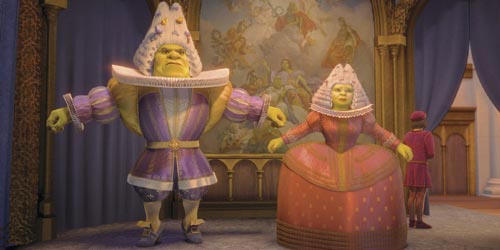 classic Disney, and the updated, apologist buffoons that Hollywood is serving up to boys like mine. They don’t want their fairytales to undergo a gory reversal toward the truly grim versions of Grimm’s. My ten-year-old understood that once parents felt the need to educate their kids that the outside world was a scary, unpredictable place, but when asked if boys still need brutal fairytales to teach that lesson, he replied with a snort, “Are you kidding? All you have to do to learn that is watch the news, for gods’ sakes.”
classic Disney, and the updated, apologist buffoons that Hollywood is serving up to boys like mine. They don’t want their fairytales to undergo a gory reversal toward the truly grim versions of Grimm’s. My ten-year-old understood that once parents felt the need to educate their kids that the outside world was a scary, unpredictable place, but when asked if boys still need brutal fairytales to teach that lesson, he replied with a snort, “Are you kidding? All you have to do to learn that is watch the news, for gods’ sakes.”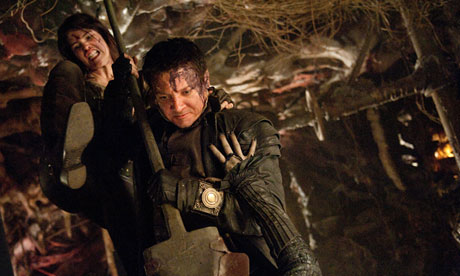

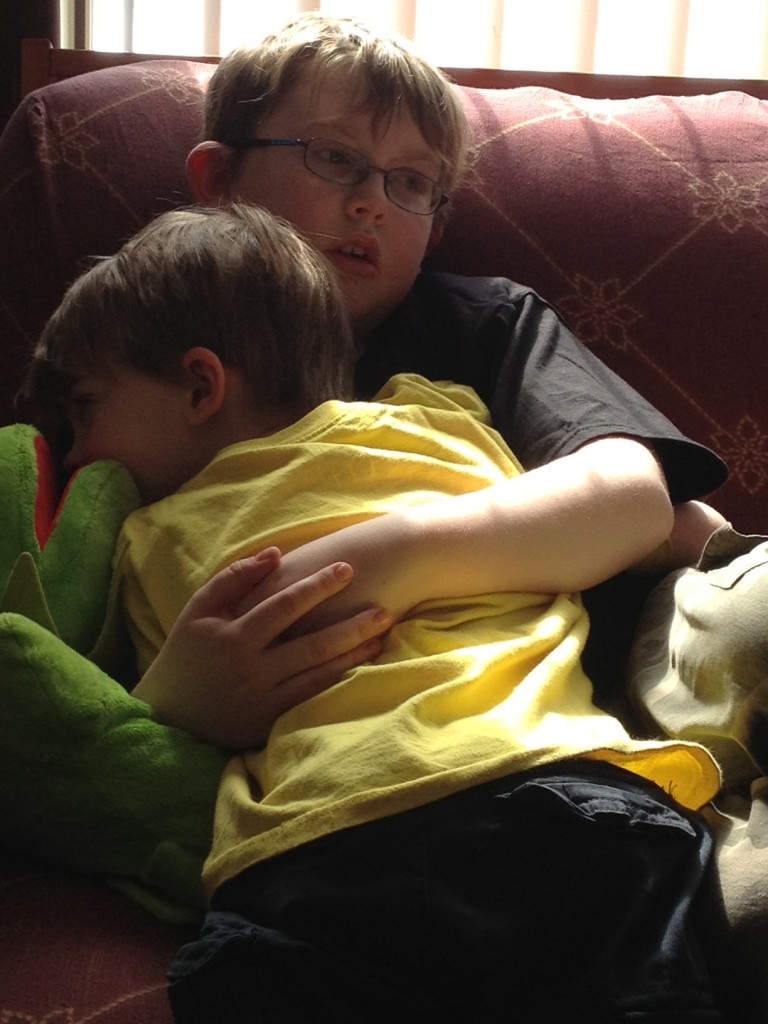
 I know the Internet is designed to inspire fury. That hasn’t been the majority of my experience with it, but lately, it seems determined to correct my underestimation of its rage-inducing qualities.
I know the Internet is designed to inspire fury. That hasn’t been the majority of my experience with it, but lately, it seems determined to correct my underestimation of its rage-inducing qualities. PROBLEM #3: HE THINKS THERE’S ONLY ONE WAY TO PLAY WITH TOY CARS. This one particularly burns my ass, because I know from experience that he’s wrong. When I was a kid, I played with toy cars by lining them up in perfectly symmetrical, parallel rows, sorted by shape, size, and color. Then my sister would walk through the lines like Godzilla, kicking them to kingdom come. And then I would line them up again in different patterns. I picked my favorites by the way they felt in my palm, my closed fist.
PROBLEM #3: HE THINKS THERE’S ONLY ONE WAY TO PLAY WITH TOY CARS. This one particularly burns my ass, because I know from experience that he’s wrong. When I was a kid, I played with toy cars by lining them up in perfectly symmetrical, parallel rows, sorted by shape, size, and color. Then my sister would walk through the lines like Godzilla, kicking them to kingdom come. And then I would line them up again in different patterns. I picked my favorites by the way they felt in my palm, my closed fist.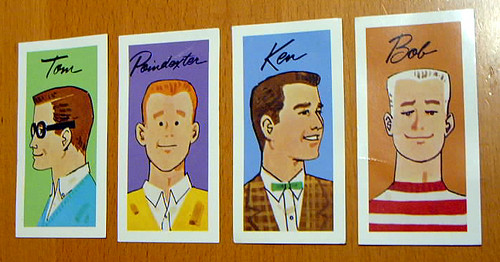
 Friday is the Autistic Day of Mourning, a day to honor the autistic people who have lost their lives to the desperate or careless actions of parents and guardians, or to the crushing weight of the sensory world that seems inescapable by any other means but death.
Friday is the Autistic Day of Mourning, a day to honor the autistic people who have lost their lives to the desperate or careless actions of parents and guardians, or to the crushing weight of the sensory world that seems inescapable by any other means but death.
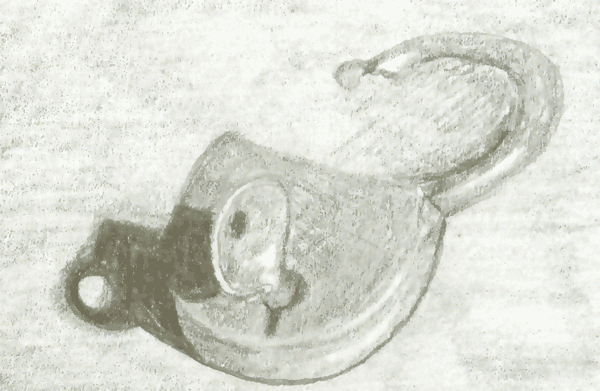
 I came again the next year, and the whole world had changed. TSR was under siege, in their four-story castle in the center of the dealer’s hall, but there were sappers among us in the crowds, skulking around in clown white and satin capes.
I came again the next year, and the whole world had changed. TSR was under siege, in their four-story castle in the center of the dealer’s hall, but there were sappers among us in the crowds, skulking around in clown white and satin capes.